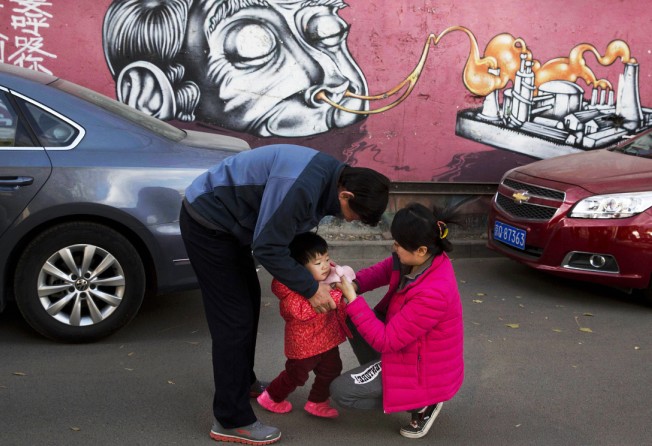About one million Chinese couples ask to have second child after easing of one-child policy

About one million Chinese couples have applied for permission to have a second child since China’s decades-old one-child policy was relaxed, the mainland’s health authority said today.
This figure was in line with official expectations after the Chinese government’s decision to ease the restriction in late 2013, Mao Qunan, spokesman for the National Health and Family Planning Commission, said.
Authorities expected the change would lead the extra number of births to peak at two million births each year, Mao said.
The number of additional births would rise this year owing to the natural time delay since the policy had been relaxed.
The one-child policy was introduced in 1979 to help control China’s huge population, but it has led to demographic problems over the past few decades.
The health authority had also been studying the current situation to help improve future healthcare for pregnant women and their babies when China’s population started to boom, Mao said.
The Standing Committee of the National People’s Congress approved the change to the one-child policy rules in November 2013.
Couples can now apply for permission to have a second child if one of the parents is an only child.
Local governments have been adopting the decision to relax the regulations since March.
China’s health authorities have also been keeping a close watch on the bird flu outbreak in the country, which “remained stable at present”, Mao said.
“We cannot exclude the possibility that certain areas will have individual cases [of highly pathogenic avian influenza] and we will devote special attention to these cases,” Mao added.
In a response to media reports of a five-year-old girl in Fujian province, who had contracted HIV through a hospital blood transfusion, Mao said a preliminary investigation showed the child might have become infected during a period when the virus had been undetectable.
China’s government was now promoting the use of a nucleic acid HIV test, which should shorten the test period from 20 days to about 10 days.